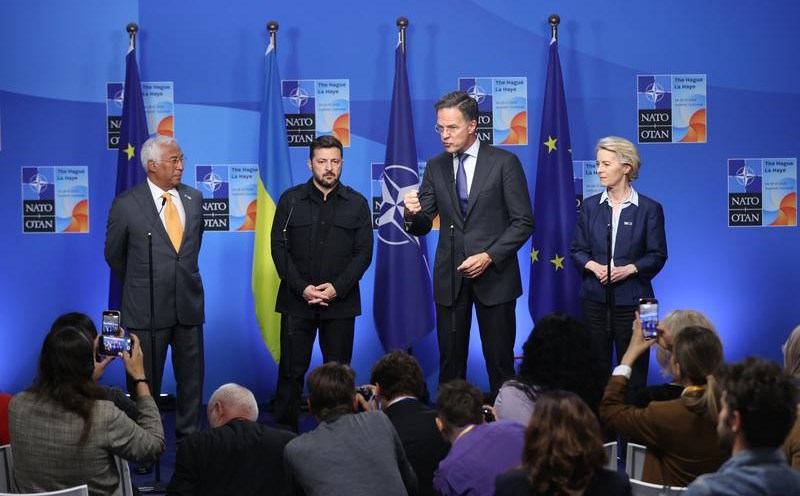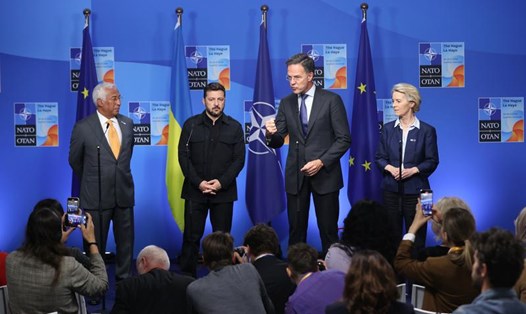On November 17, Politico published information from the European Commission (EC) letter to member countries. Accordingly, the EC estimates Ukraine's total external financial demand at 146.5 billion USD in 2026 - 2027.
This huge figure is based on an important assumption: The conflict will end by the end of 2026. The EC document states: "According to the IMF's preliminary forecasts, the conflict is expected to end by the end of 2026. The total remaining demand is estimated for the period 2026 - 2027 up to 146.5 billion USD".
The letter is seen as the EC's latest effort to pressureuding member states, especially Belgium, to agree to Russia's freeze-duty collection plan.
The EU is racing against time, as previous reports on November 7 warned that Ukraine could run out of budget and IMF funding would also stagnate if the EU failed to disburse these compensation loans.
The biggest obstacle is still Belgium. The country holds a majority of the $224 billion in sovereign assets of Russia in the archiving company Euroclear.
At the October summit, Belgium blocked the proposal. Brussels is concerned that if the display action is ruled illegal by an international court, Belgium may have to compensate Russia alone. Other powers such as France and Italy have also expressed similar concerns about legal and financial risks.
To highlight the urgency, the EC document also analyzed in detail the financial pressures. Financial pressures are expected to be particularly severe in 2026 and 2027, as Ukraine's unsatisfied demand could reach more than 75.6 billion USD for 2026 and 69.1 billion USD for 2027.
The EC explains the reason for these huge costs. First, it reflects the continuous intensity of the conflict.
Second, the EC predicts a decline in military support in kind, forcing Kiev to spend its own money to buy it.
Third, Ukraine needs money to maintain the core functions of the state. Finally, Kiev needs to continue building important industrial and defense capabilities.
While the EU is still controversial, the US spoke out in full support of the EU's plan on November 7, considering it a "tool" to pressure Russia to end the conflict.











